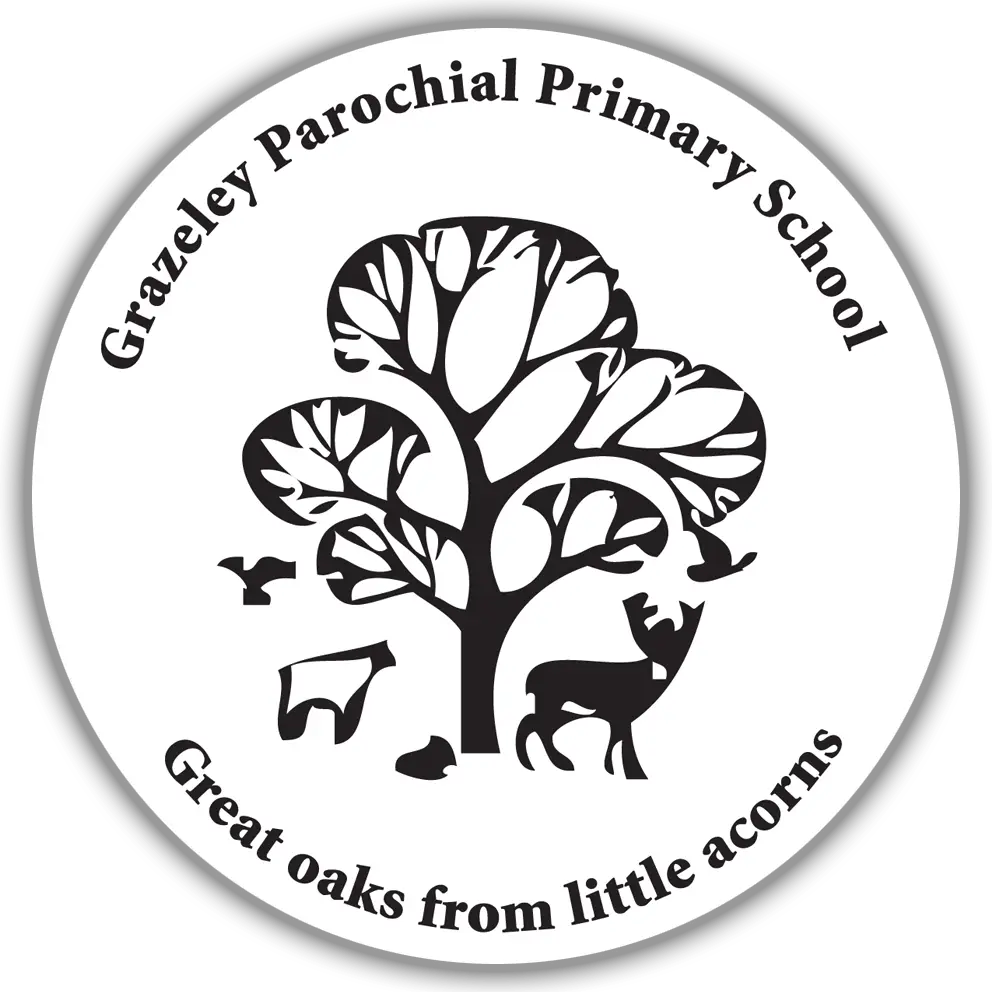- 0118 9883340
- admin@grazeley.wokingham.sch.uk
Religious Education (RE)
We aim to promote religious literacy through our teaching of religious education. Religious literacy requires pupils to gain knowledge and understanding of a range of religions and worldviews and to use that knowledge to engage in informed and balanced conversations about religions and beliefs.
Religious Education (RE)
Intent
Pan Berkshire Locally Agreed Syllabus, Purpose of Study
The purpose of RE is to promote religious literacy. Religious literacy requires pupils to gain knowledge and understanding of a range of religions and worldviews and to use that knowledge to engage in informed and balanced conversations about religions and beliefs. In addition to learning about religions and worldviews, Religious Education offers students the chance to develop spiritually, morally, socially, and culturally and to reflect on their own beliefs, being able to be discerning about the many attitudes and opinions they will encounter.
Whole School Definition of RE
The non-statutory 2013 National Curriculum Framework for RE states that pupils should:
- Know about and understand a range of religions and worldviews
- Express ideas and insights about the nature, significance and impact of religions and worldviews
- Gain and deploy the skills needed to engage seriously with religions and worldviews.
To achieve these aims, Religious Education provokes challenging questions about meaning, purpose, beliefs about God, issues of right and wrong and what it means to be human. RE plays an important role in preparing pupils for life in the modern world and should enable them to flourish as citizens in a pluralistic, global society.
Quote
In religious education (RE), pupils enter into a rich discourse about the religious and non-religious traditions that have shaped Great Britain and the world. RE enables pupils to take their place within a diverse multi-religious and multi-secular society. At its best, it is intellectually challenging and personally enriching. It affords pupils both the opportunity to see the religion and non-religion in the world, and the opportunity to make sense of their own place in that world.RE Review - May 2021
Implementation
At Grazeley Primary school, we develop understanding of different religions in a spiral curriculum. Each half term unit has an enquiry question as its title, to encourage analysis, reflection, and more questions. Every time pupils meet an idea or concept; they further develop their understanding and refine their own views.
As set out in the statement of entitlement (2019); https://www.churchofengland.org/sites/default/files/2019-02/re-statement-of-entitlement-for-church-schools.pdf , the teaching of Christianity is at least 50 percent of the curriculum, and the study of Judaism, Hinduism, Sikhism, and Islam and the exploration of other world views is the remainder of the curriculum. This is in line with the Pan Berkshire Locally Agreed Syllabus 2018-2023.
The curriculum is taught in a balanced way, allowing children to study the enquiry questions as theologians, philosophers, and social scientists. The use of these different lenses, allows children to build up a wholistic picture of religions and world views, studying thoughts, beliefs, and actions.
The curriculum is enhanced by regular trips to appropriate places of worship and visitors with different beliefs and world views are asked into school, to ensure children understand that religion is a lived reality. Art, drama, research, and physical and practical activities, including the use of artefacts and food are all used to bring variety to RE lessons and to help children learn and remember more.
Our RE curriculum is based on the Pan Berkshire Locally agreed Syllabus 2017-2023 (review currently ongoing)
At Grazeley Primary School, Christianity is taught through key concepts that repeat throughout the curriculum. These are split into the substantive knowledge that children must know and remember and the disciplinary knowledge, that they need to understand, to be theologians, philosophers and social scientists.
The Reception curriculum is based around three Understanding Christianity units and introduces the concepts of God, Incarnation, and Salvation. It also involves the study of different festivals from a range of religions. Key Stage 1 is used to develop the concepts introduced in Reception and expands to include Creation and Gospel. In Key Stage 2, the curriculum progresses and revisits the concepts introduced previously and introduces the people of God and the Kingdom of God. This allows for the repeated retrieval of preceding topics and the cumulative development of religious ideas.
In KS1, pupils study Judaism and Islam in addition to Christianity and in KS2 Pupils study Judaism, Hinduism, Sikhism, and Islam. The exploration of other world views is incorporated into RE learning.
Substantive Knowledge
The substantive knowledge in each unit is detailed on the Knowledge Organisers that are an appendix to this document.
They include the facts, concepts and vocabulary that are relevant to that enquiry question.
Areas of study include:
- Beliefs about God
- Religious text and its meaning
- Places of worship,
- Religious practice (festivals, worship, pilgrimage, clothing, Daily life)
Disciplinary Knowledge (being a ’theologian, a philosopher or a social scientist)
This includes the skills of
- Asking questions,
- Analysing text,
- Collecting evidence
- Evaluating evidence
- Comparing and contrasting different views,
- Drawing conclusions,
- Asking further questions
- Considering what this means for them
- Reflecting on their own views
Curriculum material
Our curriculum is drawn from three sources. Understanding Christianity, RE Today and the Oxford Diocese scheme of work.
Understanding Christianity is used to develop Christian concepts through KS1 AND 2. It uses a study of biblical text and explores the impact that this has on believers and builds connections between the word of God and the practises and activities of believers.
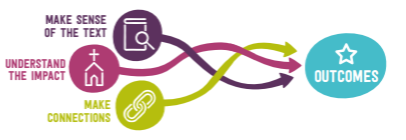
RE Today – materials are being used in the teaching of Judaism and Islam, to exemplify excellent teaching and learning and support staff in their classroom practice. The Diocesan scheme brings a thematic look to the topics of light, pilgrimages, and clothing to emphasis the links between religions as well as their distinct features.
Whole School Overview
Impact
Feedback and Assessment
We use ‘proof of progress’ questions in each lesson to determine progress made.
Examples of our learning in RE

celebrations. Putting Diva lamps on the windowsill.
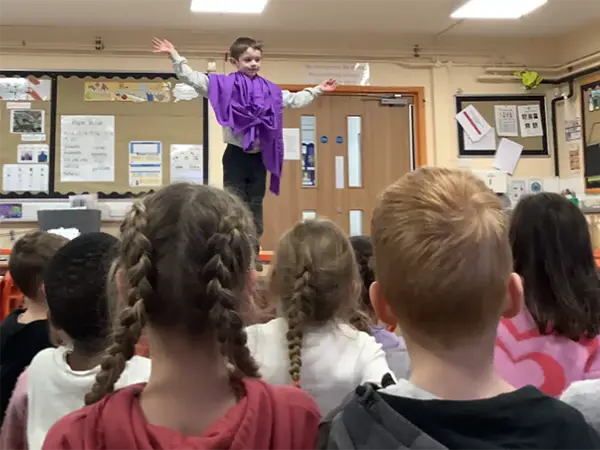
this is Jesus’ ascension into heaven.
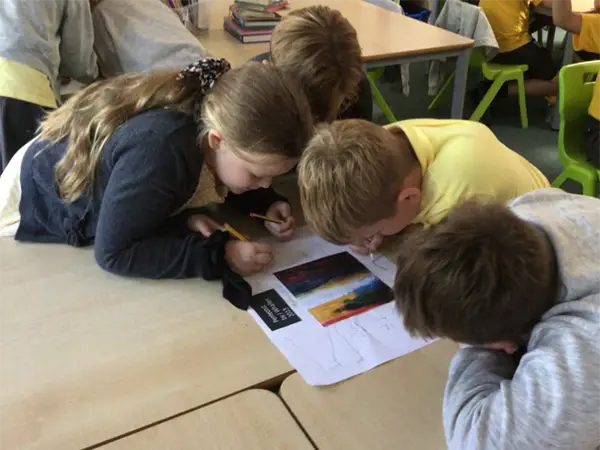
of the story of Pentecost.
Trips
Memorable experiences, such as visits to places of worship and visits from members of different religions, are planned in when they clearly support the learning.
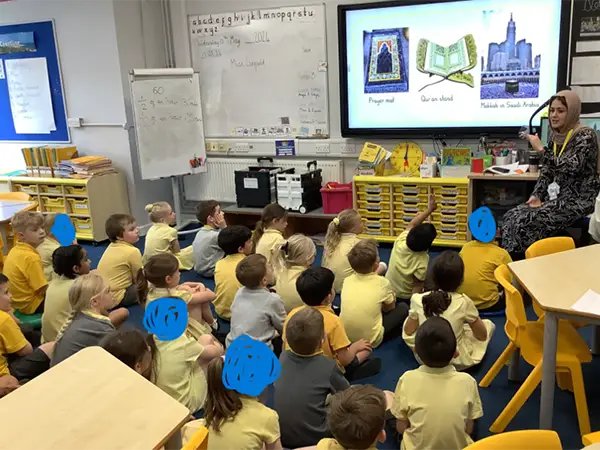
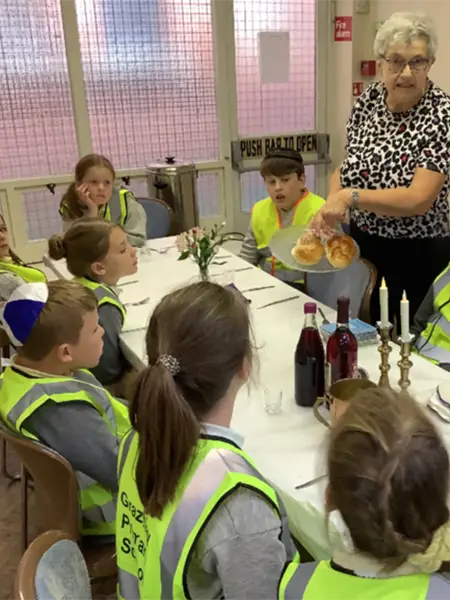
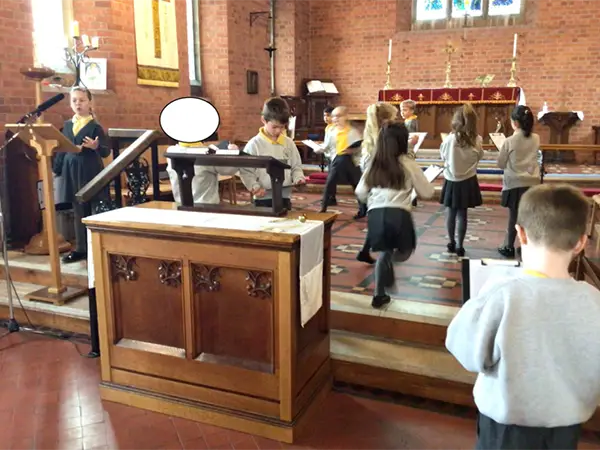
of a Church and how Christians prepare for celebrating Easter.
They also saw how a baby would be baptised.
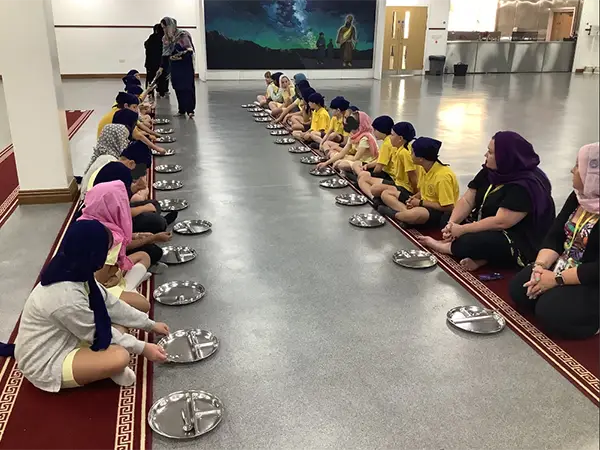
in the country!
Religion and belief have become more visible in public life in recent years, making it important that all pupils should have an opportunity to engage in RE. However, the parent of a pupil at a community, foundation or voluntary school (or pupils themselves if they are aged 18 or over) may request that they be excused from all or part of the religious education (RE) provided.
Parents who wish to withdraw their children from RE should be aware of its aims and what is covered in the RE curriculum and that they are given the opportunity to discuss this if they wish. It should be made clear whether the withdrawal is from the whole RE curriculum or specific parts of it. No reasons need be given
Important – limitations to withdraw
- If pupils are withdrawn from RE, schools have a duty to supervise them, though not to provide additional teaching. A pupil may be required to work in another area of the school, such as library or break out area.
- Whilst parents or carers have a right to withdraw children from RE, they should note that children may also encounter religions and beliefs and wider aspects of faith in other areas of the curriculum from which there is no right of withdrawal.
- On occasion, spontaneous questions about religious matters are raised by pupils or issues related to religion arise in other curriculum subjects such as history or citizenship (PSHE) For example, schools promote community cohesion and help pupils to understand ideas about identity and diversity, feelings and emotions within both religious and non-religious contexts.
Managing the Right of Withdrawal
- If pupils are withdrawn from RE, schools have a duty to supervise them, though not to provide additional teaching or to incur extra cost. Pupils will usually remain on school premises where it is feasible and appropriate.
- Where a request for withdrawal is made, the school must comply and excuse the pupil until the request is rescinded. Though not legally required, it is good practice for a head teacher to invite parents to discuss their written request.
(Section 71(3), School Standards and Framework Act 1998).
